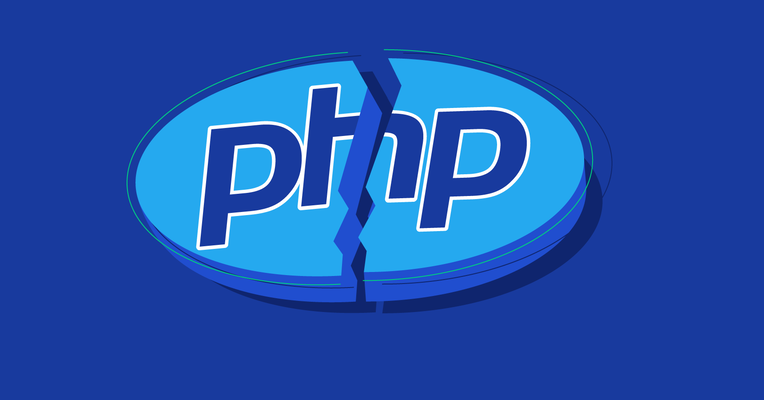
Hire Joomla Developers
Hire the Top 3% of Freelance Joomla Developers
Toptal is a marketplace for top Joomla developers, engineers, programmers, coders, architects, and consultants. Top companies and startups can hire Toptal dedicated (full-time), hourly, or part-time Joomla freelancers for their mission-critical software projects.
No-Risk Trial, Pay Only If Satisfied.
Hire Freelance Joomla Developers
Lu Jiang
Lu is an experienced technologist with over a decade of engineering expertise spanning education, healthcare, and other industries. She is skilled at quickly adopting new tools and languages to build scalable, reliable software. Analytical by nature, with a strategic mindset and a drive to refine workflows, Lu solves complex problems and develops systems that support long-term impact in learning and healthcare environments.
Show MoreShivaraman Aiyer
Shivaraman has over five years of experience as a full-stack developer. He has WordPress expertise, creating themes and plugins, and has also worked on Joomla, MEAN stack, and Android. He has experience building complex yet beautiful-looking brochure and eCommerce websites and builds them around the client's philosophy, requirement, and design.
Show MoreFlavio Escobar
Flavio is a top developer and an aspiring entrepreneur. He has extensive experience and skills in web and game development and is proficient in mobile applications. He is a master of PHP, JavaScript, and WordPress. In recent years, Flavio has specialized in Elixir and the Phoenix framework.
Show MoreNima Rezazadehhamed
Nima is a skilled React developer with over a decade of experience in PHP, JavaScript, and Java. He excels in building web applications and websites, from the infrastructure (configuring and optimizing web servers, DNS, and security) to the client-facing side (UI, UX, SEO, and GA). He has migrated platforms without losing sales and search results rankings, assisted in the creation of a search engine, and created an open-source project that creates web applications for online stores.
Show MoreDaniel Gheorghe
Daniel is a full-stack web developer and Zend Certified PHP Engineer. He started coding PHP in 2005 and, since then, he has worked on tens of successful web development projects. With a decade of experience as the lead software engineer for multiple US web development companies, Daniel can take on a wide range of projects while maintaining great communication and providing valuable expertise.
Show MoreDarren Stevens
Since the early 2000s, Darren's been building all sorts of websites, including static sites to Joomla and ExpressionEngine—currently, he's solely focusing on WordPress. Where Darren excels is in quickly building full site themes along with front- and back-end customizations without sacrificing code security. Darren has experience working freelance, so he understands the need for exemplary communication and always strives to exceed expectations.
Show MoreAleksandr Kariakin
Aleksandr is an experienced back-end developer with over four years in the field. He focuses on Ruby and Python development, CI/CD streamlining, and DevOps methodologies. Proficient at problem-solving and debugging, Aleksandr is known to enhance workflows quickly. He uses a practical collaborative approach to work with diverse teams and provide scalable and efficient solutions.
Show MoreNazrulla Sadullaev
Nazrulla is a software engineer with 3+ years of experience in the field as a back-end developer and data scientist at international companies. He's built projects using the Laravel framework and Python as a back end plus a mix of other tools for certain functionalities. He's passionate about competitive programming and algorithmic problems and has participated in the Regional ACM ICPC competition. Nazrulla is ready to deliver solutions in a professional and effective way.
Show MoreRobert Keyan
For over ten years, Robert honed his skills in developing web applications using the MER(A)N-stack. His journey spans collaborations with diverse teams and enterprises, bridging continents with remote collaborations in various industries across Germany, Russia, the US, and Israel. Robert's focus has evolved into a multifaceted leadership role in recent years. Beyond coding, he has embraced the challenge of guiding and managing teams of developers while architecting a technological solution.
Show MoreNabeel Ahmed
Nabeel is a lead architect with 16+ years of experience in business solution design, development, and delivery across Asia-Pacific. He has extensive development and leadership experience designing innovative solutions and providing motivation, guidance, and up-to-date consultancy services for Microsoft Power Platforms, Dynamics 365, Pega, Nintex, and UiPath. He engages directly with clients, helping them define their needs and leading teams to drive the shared organizational vision and growth.
Show MoreJelena Drobnjakovic
Jelena has been actively working as a front-end developer for about eight years. Her job includes daily usage of HTML, CSS, JavaScript, Angular/Vue, jQuery, Laravel, and Git. She loves creating beautiful web pages that are optimized and working smoothly on all devices. Besides programming, she has also overseen the organization of work for some projects, which she loves doing. Communication between colleagues is key to building good applications.
Show MoreDiscover More Joomla Developers in the Toptal Network
Start HiringA Hiring Guide
Guide to Hiring a Great Joomla Developer
Joomla experts are crucial to developing adaptable, efficient websites and applications that drive high traffic. Whether you're building an application from scratch, optimizing your platform's performance, or adding advanced features, hiring Joomla specialists will guide your project to success—offering streamlined content management, high reliability, and flexible solutions.
Read Hiring Guide... allows corporations to quickly assemble teams that have the right skills for specific projects.

Despite accelerating demand for coders, Toptal prides itself on almost Ivy League-level vetting.









How to Hire Joomla Programmers Through Toptal
Talk to One of Our Client Advisors
Work With Hand-selected Talent
The Right Fit, Guaranteed
EXCEPTIONAL TALENT
How We Source the Top 3% of Joomla Developers
Our name “Toptal” comes from Top Talent—meaning we constantly strive to find and work with the best from around the world. Our rigorous screening process identifies experts in their domains who have passion and drive.
Of the thousands of applications Toptal sees each month, typically fewer than 3% are accepted.
Capabilities of Joomla Developers
Toptal’s Joomla developers provide end-to-end development services tailored to the unique needs of SMBs and enterprise clients. Our developers have extensive experience with Joomla and utilize its robust features to deliver scalable, secure, and high-performing websites.
Template Design and Customization
Building Custom Extensions
E-commerce Setup
Third-Party API Integration
Custom Forms and User Management
Advanced Joomla Security
Performance Optimization
Multilingual Website Development
SEO Optimization
Website Migration
FAQs
How quickly can you hire with Toptal?
Typically, you can hire Joomla developers with Toptal in about 48 hours. For larger teams of talent or Managed Delivery, timelines may vary. Our talent matchers are highly skilled in the same fields they’re matching in—they’re not recruiters or HR reps. They’ll work with you to understand your goals, technical needs, and team dynamics, and match you with ideal candidates from our vetted global talent network.
Once you select your Joomla architect, you’ll have a no-risk trial period to ensure they’re the perfect fit. Our matching process has a 98% trial-to-hire rate, so you can rest assured that you’re getting the best fit every time.
How do I hire Joomla developers?
To hire the right Joomla specialist, it’s important to evaluate a candidate’s experience, technical skills, and communication skills. You’ll also want to consider the fit with your particular industry, company, and project. Toptal’s rigorous screening process ensures that every member of our network has excellent experience and skills, and our team will match you with the perfect Joomla developers for your project.
How are Toptal Joomla programmers different?
At Toptal, we thoroughly screen our Joomla consultants to ensure we only match you with the highest caliber of talent. Of the more than 200,000 people who apply to join the Toptal network each year, fewer than 3% make the cut.
In addition to screening for industry-leading expertise, we also assess candidates’ language and interpersonal skills to ensure that you have a smooth working relationship.
When you hire Joomla experts with Toptal, you’ll always work with world-class, custom-matched Joomla developers ready to help you achieve your goals.
Can you hire Joomla experts on an hourly basis or for project-based tasks?
You can hire Joomla architects on an hourly, part-time, or full-time basis. Toptal can also manage the entire project from end-to-end with our Managed Delivery offering. Whether you hire a Joomla developer for a full- or part-time position, you’ll have the control and flexibility to scale your team up or down as your needs evolve. Our Joomla developers can fully integrate into your existing team for a seamless working experience.
What is the no-risk trial period for Toptal Joomla architects?
We make sure that each engagement between you and your Joomla developer begins with a trial period of up to two weeks. This means that you have time to confirm the engagement will be successful. If you’re completely satisfied with the results, we’ll bill you for the time and continue the engagement for as long as you’d like. If you’re not completely satisfied, you won’t be billed. From there, we can either part ways, or we can provide you with another Joomla developer who may be a better fit and with whom we will begin a second, no-risk trial.
How to Hire Joomla Developers
The Demand for Joomla Developers Continues to Rise
As of 2024, Joomla holds a 2.3% market share among all websites and, as a content management system (CMS), trails only behind the likes of WordPress, Shopify, and Squarespace. While this accounts for a smaller percentage than more dominant players, Joomla remains popular among businesses requiring more sophisticated, customizable web solutions than basic website builders can provide. Joomla’s reputation as a flexible, reliable open-source platform and its large and supportive community are testament to its ongoing relevance, and businesses of all sizes are actively seeking Joomla experts to build and customize their web platforms.
Joomla’s versatility makes it an attractive choice for companies and organizations needing a modular solution that scales easily and can handle various web applications and services. Whether corporate domains, e-commerce websites, or complex online communities, Joomla allows businesses to create highly tailored websites that deliver strong performance and an engaging user experience. However, finding a Joomla developer with the expertise needed to leverage this platform’s strengths can be challenging. True Joomla experts understand how to utilize the platform’s core architecture and native frameworks and tools to build efficient, secure, and responsive applications.
With businesses increasingly prioritizing innovative digital experiences, the demand for skilled Joomla developers will continue to rise. Joomla remains a trusted choice for companies that require flexible and customizable CMS solutions. This guide helps hiring managers and recruiters understand what sets top Joomla developers apart, enabling them to find the right talent to join their teams and craft innovative, responsive websites.
What Attributes Distinguish Quality Joomla Developers From Others?
Joomla experts have a complex skill set that combines CMS expertise, proficiency in PHP, and the ability to work with Joomla’s MVC (Model-View-Controller) architecture. Quality Joomla developers have an in-depth understanding of Joomla’s core features, customizability, and administrative interface, enabling them to create both user-friendly and highly functional websites. A working knowledge of Joomla’s component structure is essential, as components, plugins, modules, and templates drive Joomla’s functionality.
Joomla developers should also be fluent in front-end technologies like JavaScript, HTML, and CSS, as well as frameworks like Bootstrap. Strong PHP skills are a must, as Joomla is built on PHP, and developers are often tasked with customizing extensions or even creating them from scratch.
Joomla developers should also have experience with Joomla-specific components and extensions, such as K2 for content management and VirtueMart for e-commerce, leveraging tools from the Joomla ecosystem to increase reliability and minimize the amount of custom coding required.
Security is another important skill for prospective hires, as Joomla can become a target for cyberattacks. Dedicated Joomla developers know how to employ Joomla’s built-in security tools, stick to ultra-secure coding practices, and implement additional measures to protect their applications from common threats.
Communication is an essential soft skill that sets standout candidates apart; the most effective Joomla developers have no difficulties explaining technical concepts to non-technical stakeholders, collaborating with team members, and translating business requirements into technical solutions.
How Can You Identify the Ideal Joomla Developer for You?
Identifying the right Joomla developer that will seamlessly fit with the rest of your team begins with defining your project’s requirements. Are you looking for a developer to handle a basic site setup, or does your project involve extensive customization and integration with other systems? By clarifying your needs upfront, you can pinpoint the skills and years of experience appropriate for your Joomla project. First and foremost, you should understand whether you are looking to hire a junior developer or a more experienced programmer.
Junior developers can typically handle more straightforward tasks, such as core configuration and template modifications. They are familiar with Joomla’s basic features but may not have the experience needed for complex customizations or architectural design. Juniors are best suited for implementing predefined functionalities and making simple adjustments under the guidance of more experienced developers. They are a great asset for working with existing applications that need new, simple features or a minor revamp. However, if you’re planning to build a new platform from scratch, you may want to consider hiring a developer with more seniority.
Senior developers bring a higher level of expertise and experience. They are skilled in handling advanced tasks such as custom component development, extension modification, and performance optimization. They also tend to have experience with the more design-oriented side of application development, such as application architecture. Senior developers are proficient at addressing complex requirements, including security measures and highly specialized functionalities, making them the most appropriate choice for larger projects requiring a deep knowledge of Joomla’s infrastructure and advanced technical skills.
Complementary Technology Skills for Joomla Developers
Software development doesn’t happen in a vacuum. In order to create unique and innovative web solutions, Joomla developers are often required to draw from a range of complementary skills.
- JavaScript Frameworks: Familiarity with JavaScript frameworks like Vue.js or React for creating dynamic front-end elements allows Joomla developers to design more interactive user experiences.
- API Integration: Joomla developers with knowledge of building and operating RESTful APIs can enable integrations with external resources, such as CRM systems and e-commerce platforms. This experience is particularly valuable for companies who wish to create interconnected web ecosystems around their platforms.
- Search Engine Optimization (SEO): To achieve high rankings on search engines, every piece of content should be optimized for SEO. With the increased competition for keywords on search engines, SEO expertise is highly beneficial for Joomla developers.
- Performance Optimization: Joomla developers should be adept at optimizing a website’s performance, leveraging strategies like caching, content delivery networks (CDNs), and scaling. A highly responsive website benefits not only user experience but also search engine visibility.
- Version Control and Collaboration Tools: Proficiency in Git and project management tools such as Jira or Asana supports cross-functional development and allows Joomla developers to implement version control, an essential skill in team environments where more than one developer works on the same project.
How to Write a Joomla Developer Job Description
A well-crafted job description is critical for attracting top Joomla talent. Begin with a specific job title that aligns with the role’s seniority and focus, such as “Senior Joomla Developer” or “Joomla Backend Engineer.” Introduce your company, including its vision, and the primary focus of your product and/or projects, as well as any unique aspects of the company culture that may appeal to potential candidates.
In the role summary, make sure to outline the role’s core responsibilities, such as designing, building, and operating Joomla sites and developing or customizing extensions. List essential technical skills such as Joomla CMS expertise, strong PHP development knowledge, experience with MySQL databases, and familiarity with version control systems. Specify any complementary skills that would be beneficial, including familiarity with APIs, knowledge of SEO optimization, or hands-on experience with e-commerce plugins. Any technologies, tools, and frameworks your future hire will frequently use should be listed here; examples include Joomla’s MVC framework, PHP, MySQL, and HTML/CSS or other front-end technologies. If applicable, include the required level of experience and educational background.
To ensure that the position stands out, highlight perks and benefits, such as flexible work hours, opportunities for professional development, or involvement in cutting-edge projects. Include clear application instructions to speed up the hiring process.
What Are the Most Important Joomla Developer Interview Questions?
To properly assess a Joomla developer’s expertise, you should focus on questions that gauge their technical skills and practical experience. The right interview questions can help you determine whether the candidate has suitable skills and expertise to deliver the desired results for your project. Here are some key interview questions to consider:
Can you explain Joomla’s MVC architecture and why it’s valuable?
Joomla’s MVC architecture is central to the platform’s code organization, making it indispensable for both scalability and maintainability after deployment. A capable Joomla programmer should be able to explain how MVC separates the application logic (Model), user interface (View), and user input (Controller) into separate layers. They should also know why this separation is important: It helps enhance code reusability, simplifies debugging tasks, and streamlines updating or modifying one component without affecting the entire system. By asking this question, you’ll be able to assess the candidate’s familiarity with Joomla’s core structure and whether they are comfortable building high-quality applications that align with the CMS’s best practices.
How do you handle security on Joomla applications?
Security is essential for any development project, and Joomla websites are no exception. A well-rounded Joomla developer should be knowledgeable of both Joomla’s built-in security features and additional security measures that follow best practices. Look for answers referencing HTTPS, Joomla’s user authentication system, and regular updates to patch vulnerabilities. Additionally, the candidate should be keen to implement preventive measures such as strong password practices, secure extensions, and custom security configurations. A strong candidate will also be aware of common threats, such as cross-site scripting (XSS) and SQL injection, and have the necessary knowledge to prevent them.
Describe a complex Joomla project you worked on and encountered obstacles.
This question sheds light on the candidate’s practical experience and approach to problem-solving. A skilled candidate will not gloss over past challenges but instead, highlight how they navigated specific issues. Look for answers that reflect a thoughtful approach to debugging and a solid grasp of troubleshooting techniques, as these responses indicate a hands-on, technical problem-solving mindset. This question is designed to give you a closer look at how they apply their skills in dynamic settings and their adaptability and resourcefulness.
How do you approach performance optimization and SEO in Joomla?
Strong Joomla developers should be familiar with current best practices for optimizing performance and SEO. For performance, strong candidates should be well-versed in using Joomla’s built-in caching tools, optimizing image sizes, compressing or minimizing CSS and JavaScript files, and adjusting server settings to enhance site load times. For SEO, look for familiarity with popular Joomla SEO plugins such as sh404SEF or JoomSEF, which manage essential elements like metadata, clean URLs, and keyword optimization. A high-quality candidate will demonstrate a comprehensive understanding of both performance and SEO optimization and will have practical examples of how they’ve improved site speed and search rankings in past projects.
What’s your strategy for developing or customizing Joomla extensions?
Joomla’s popularity stems largely from its extensibility and flexibility, allowing developers to quickly add new functionality. A suitable candidate should be able to explain their approach to creating a new extension or customizing an existing one. They should describe how they optimize extension development with frameworks such as Gantry or T3 or by following Joomla’s MVC architecture. If the candidate has developed custom extensions, ask for examples or scenarios where they’ve tailored Joomla to fit a client’s unique requirements. This question will also help you assess the depth of the candidate’s experience with Joomla’s extensibility.
How do you handle client or stakeholder communication during a project?
Effective communication is essential for successful project delivery, particularly when collaborating with clients or stakeholders who may not be familiar with the project’s technical details. Look for candidates who can articulate their process clearly, prioritizing accessibility in their communication. Setting expectations and providing regular updates fosters communication between the technical team and clients or stakeholders. Ideally, the developer will describe a structured or agile approach to communication, which might include regular progress meetings, status reports, or utilizing project management tools like Jira or Asana. Candidates skilled at explaining complex technical concepts in a way that non-technical stakeholders can easily understand are especially valuable, as this ensures that all parties stay aligned and informed throughout the development process.
These interview questions assess a candidate’s technical skills and ability to solve real-world problems. A Joomla developer who provides thoughtful, detailed answers can demonstrate the expertise and adaptability necessary to tackle project-specific challenges and effectively interact with clients.
What is the Cost of Hiring Joomla Developers?
According to Glassdoor, the median annual salary for a Joomla developer in the United States is $111,259 as of June 2024; however, when considering the cost of hiring Joomla developers, it’s important to look at more than just hourly rates. Highly qualified Joomla programmers bring specialized knowledge of the platform, such as expertise in custom extension development, efficient security strategies, and performance optimization. These high-level skills can command a premium, but they frequently result in more successful project delivery, fewer issues down the line, and the ability to create sophisticated web solutions that stand the test of time.
In addition to salary, companies should also factor in the costs of onboarding, training, and keeping developers up-to-date with industry advancements. Offering ongoing professional development can improve both the quality of your projects and the rate of developer retention.
Hiring junior Joomla developers can be a more affordable solution for businesses on tighter budgets. While juniors may require more guidance and mentoring, they can learn within your team and contribute meaningfully over time. Freelancers can also be a good choice for short-term projects, offering versatility without long-term commitment. However, for larger, more complex projects, it’s often more cost-effective in the long run to hire experienced Joomla developers who can deliver high-quality solutions by relying on their specialized knowledge.
Why Do Companies Hire Joomla Developers?
Businesses hire Joomla developers to tap into the power of a dependable, customizable CMS that can support a wide range of online applications. Joomla developers provide the specialized knowledge required to maximize the features of web projects, manage complex content structures, and implement strict security measures that protect user data and maintain site integrity. Businesses prioritizing web performance, scalability, and user experience will benefit greatly from skilled developers who bring extensive experience with Joomla, especially in industries where competition for user attention is high.
Featured Toptal Joomla Publications
Top Joomla Developers Are in High Demand.





















